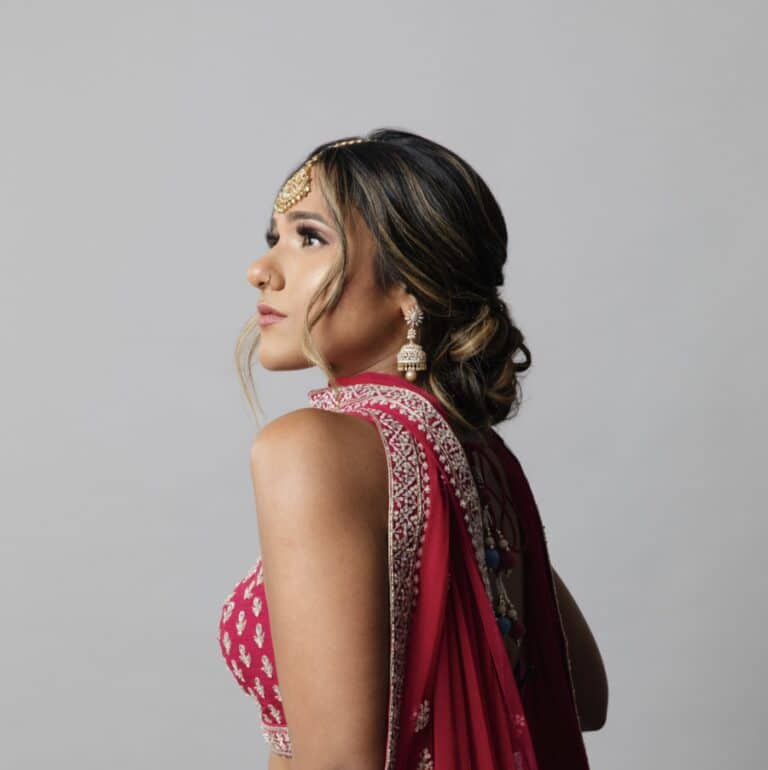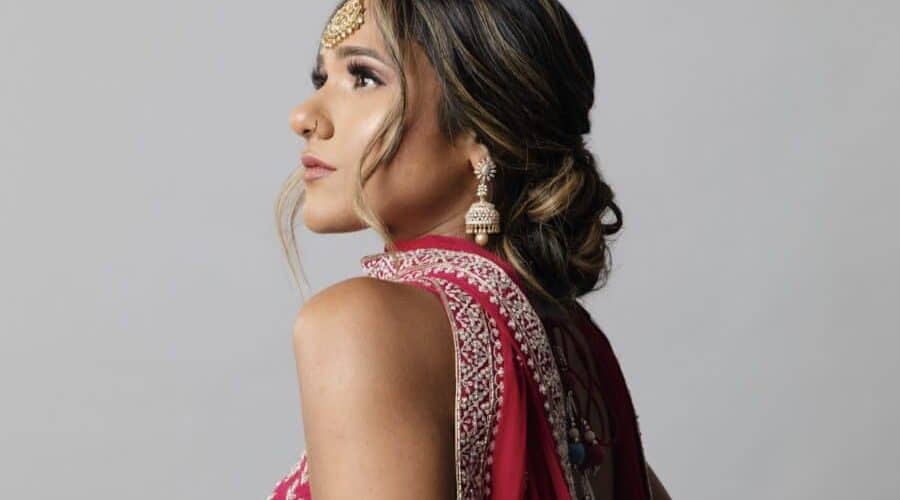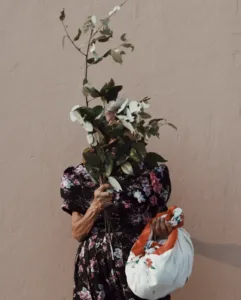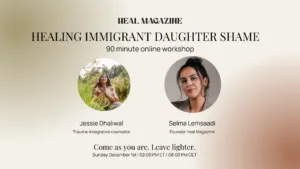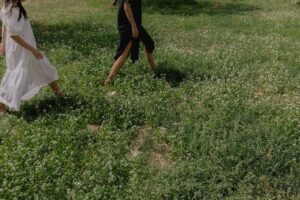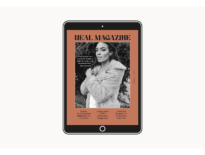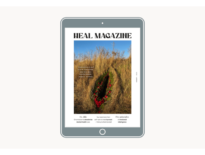If you watched the Netflix show Love is Blind, you probably fell in love with Deepti Vempati, just like the rest of the world. Her authenticity and vulnerable nature touched the hearts of many, and she became the person we were all rooting for.
I recently connected with Deepti to chat about her first book I choose myself. In it, she shares her journey growing up as an immigrant daughter, how she navigates personal relationships as well as the relationship with herself, her journey to overcoming body image issues and finding love within, and, of course, her quest for love that led her to the Netflix hit reality show. We discuss all that and more below.
TW: Eating disorders & Body image
In the book, you write about your childhood and early years. Can you share a bit about that for those who haven’t read it?
I was born in India and immigrated to the US as a young kid. For the most part, I was pretty happy, but as I entered my early teenage years, I started noticing a shift in myself. I went from being this happy kid to having these deep-rooted issues, especially around body image. I don’t know if it was the hormones, but I started comparing myself to people around me. Honestly, I didn’t realize I had these issues until I was an adult looking back on it. But for the most part, I could see the light in things. That positive outlook was always in me — I just needed to work on it a bit.
You also shared that those body image issues eventually manifested into an eating disorder. How did you overcome that and find the tools to heal?
During my early teenage years, I was getting bullied a lot about my weight, and I would turn to food as a coping mechanism to deal with those negative feelings. After I binged, I would feel so guilty that I would start purging. I just wanted to escape the feelings, but I didn’t realize that food was the vessel for it. It was something to do so that I didn’t have to think about those negative things that people were saying about me or the things that I thought about myself. Before starting college, I realized I needed to change the narrative — the way I talked to myself and the way I looked at myself. Because if you don’t see yourself in a good light, then nobody is going to see it either — it’s like the vibration you give off.
Growing up in a South Asian household, therapy was stigmatized, so it wasn’t an option for me at that time. Instead, I had to look inwards. I started writing out my thoughts because I felt like it helped me deepen my understanding of myself. When I wrote about my feelings, I could better articulate them to those around me. I also used affirmations to change the narrative on how I spoke to myself. I used to look in the mirror and have many negative things to say to the girl looking back at me. But through affirmations, I am now able to see myself as a strong, independent, and beautiful person.
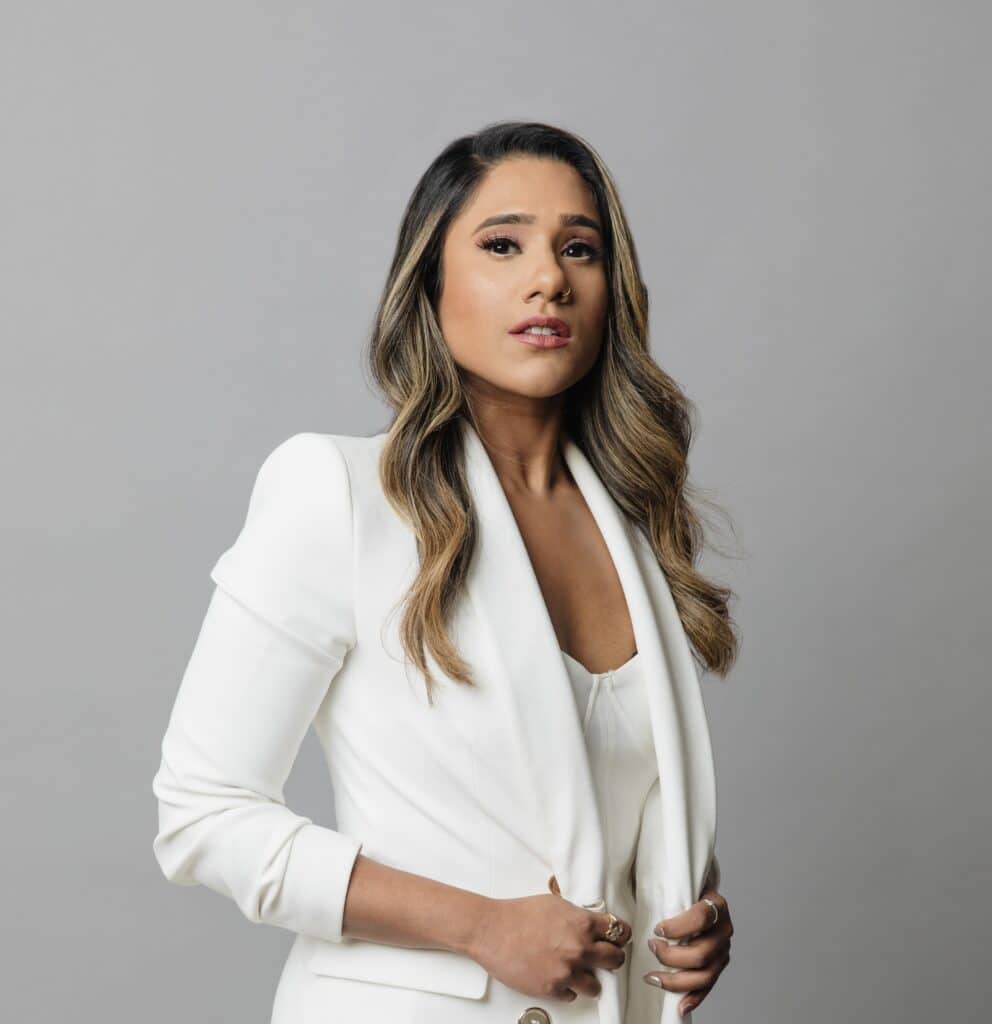
A big theme in your book is your romantic relationships. You write so beautifully and honestly, describing your journey from your early teenage years to young adulthood and the failed and toxic relationships cycles you experienced that were ultimately necessary for you to discover your boundaries. I think many women will be able to relate to that. Then comes the point in your life where you decide to go on Love is Blind.
In the book, you write:
“I faintly remember watching season one of Love is Blind back in February. I loved the concept because it genuinely explores the idea of falling for someone without ever seeing them. This concept was very different from a typical reality dating show, and I was intrigued. All these years I had struggled with my physical appearance and now someone could get to know me without seeing me, maybe it would be a chance to truly meet my match.”
That must have been such an important moment in your life because the reoccurring disappointments you had when it came to dating were centered around the hope that potential partners would fall for who you are, not the way you look. Can you share more about that moment?
In the moment, I didn’t realize how important this opportunity or experience would be for me. I didn’t realize the extremes I was going to go through. I was truly hoping that I would find my perfect person and thought, “What a cool way to find love?” Sitting with the experience after filming wrapped, I realized that going through this whole process was the biggest test for me. Though I fell for someone on the show who wasn’t physically attracted to me, I thought, “Are you going to let someone else stunt your progress? After all the work that you put in, are you going to fail this test or are you going to pass it?” That was really what it was like for me. I’m proud of myself for getting through it and realizing that my worth is something that I define myself and not something that I look for others to validate. You have to love yourself completely before you can pour that love into someone else’s cup.
Amazing, Deepti! I can imagine that by going on the show you were energetically asking the question, “Am I worthy?”, something we all do in different ways throughout our lives. But asking that question on a reality show is the ultimate request for validation — how are you navigating through that?
External validation was so wired into my brain throughout my entire life. Even today, I still have to catch myself when I seek it and say, “Don’t forget what truly matters.” That’s why those affirmations are so important; you are reassuring yourself, without having to look externally.
I love that. You are putting in the work, and that’s probably the reason you stayed centered throughout the whole process. Last question: if you could go back to any time in your life and tell your younger self one thing, when would that be, and what would you say?
What a question! I would definitely go back to my teenage years and give my younger self the biggest hug. I’d tell her to hang in there because life always has a way of working out for the best, so just enjoy the journey and love yourself.
For more Deepti, follow her on Instagram or order her book.


